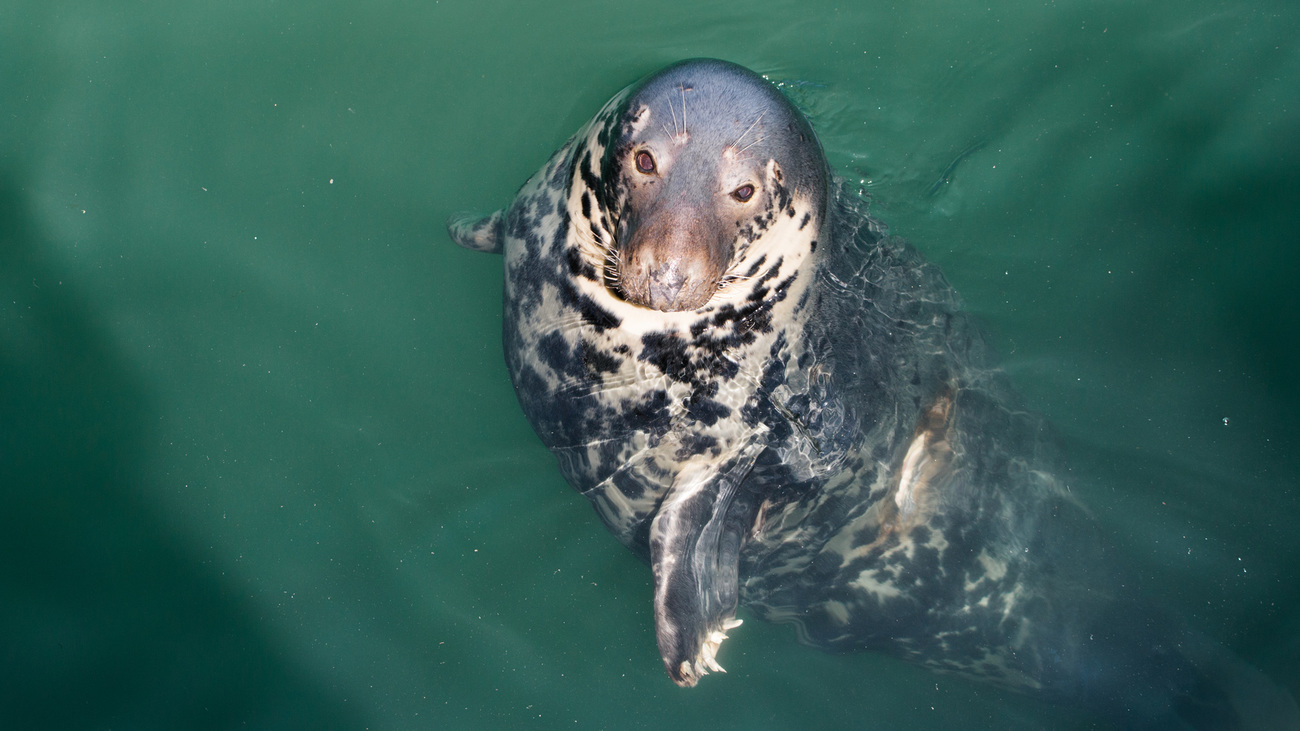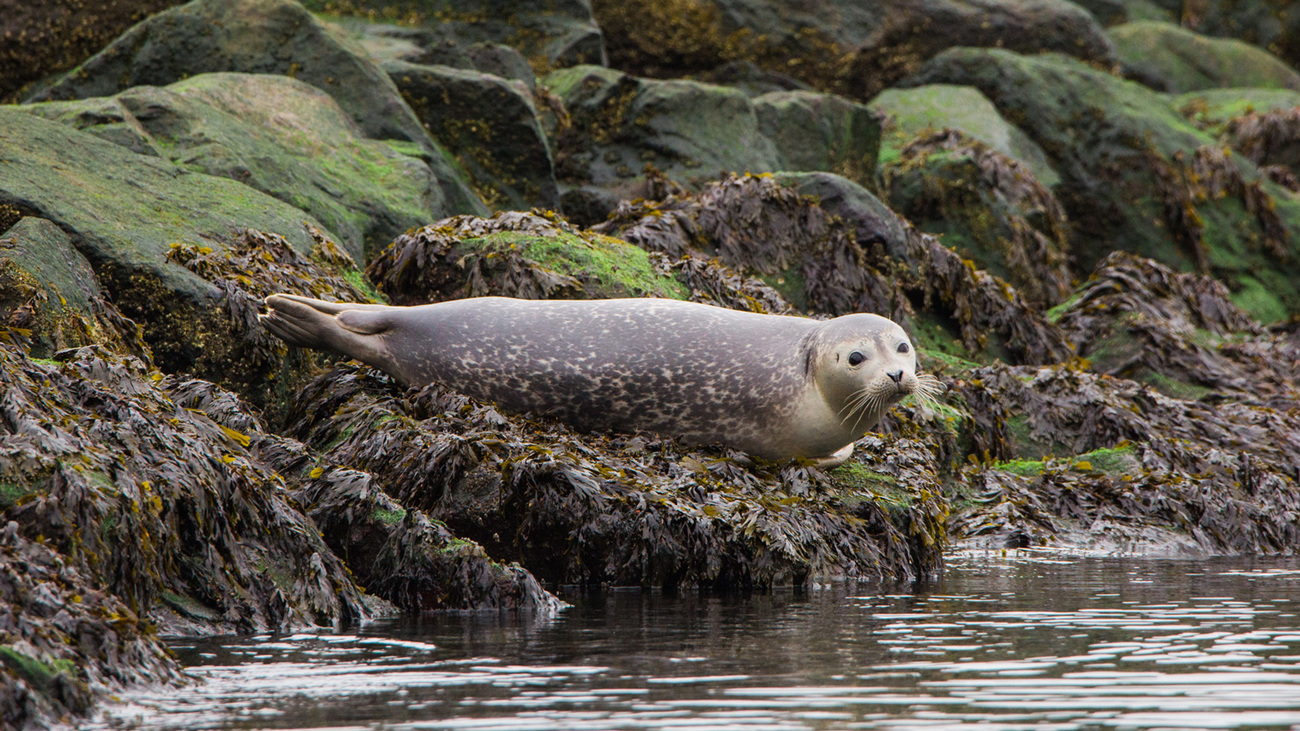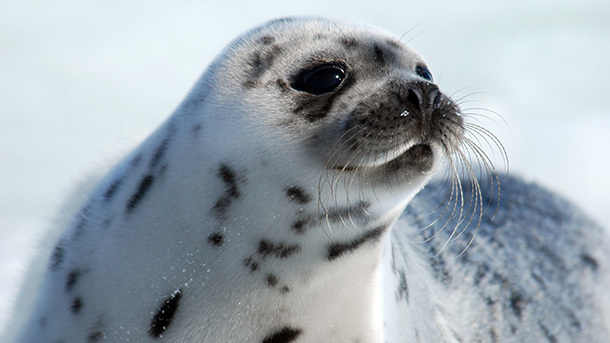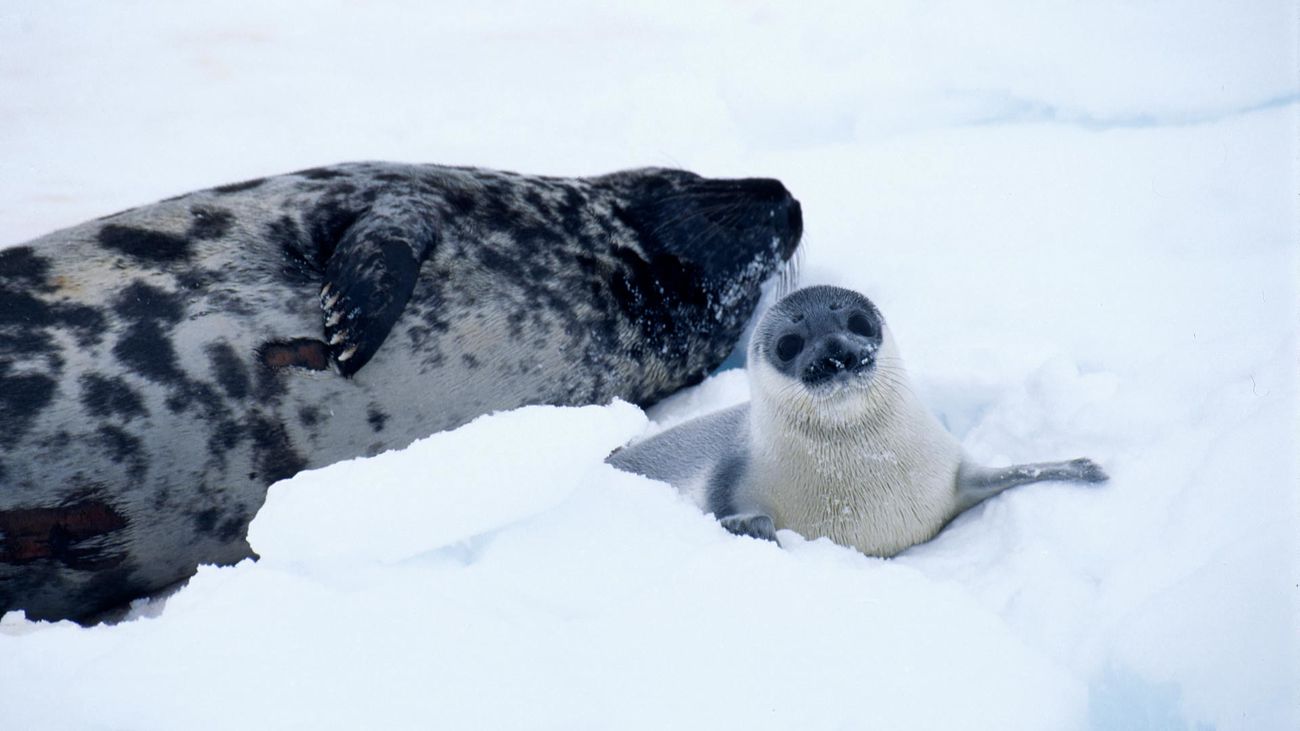Entangled Seal Rescue - North America
Fishing nets don’t just trap, they killknow your seal species on Cape Cod
know your seal species on Cape Cod
Updated September 16, 2020, previously August 17, 2015
There are four main Cape Cod seal species in the region. Two of those species, gray seals and harbor seals, are considered resident species and can be found year round. During the winter and spring months, harp seals and hooded seals can occasionally migrate to the Cape, while hooded seals are a rare sighting.
Seals are in the family Phocidae and are considered “true” seals, unlike sea lions and fur seals which are in the family Otariidae and considered “eared” seals. There are two main differences between seals and sea lions. First, sea lions have external ear flaps, while seals lack external ears. Second, sea lions are able to rotate their hind flippers which make them able to “walk” on land and be more agile. True seals are unable to rotate their hind flippers, so they inch along on their bellies when they are on land.
Only true seals are found on the East Coast. Here are some fun facts about each seal species found on Cape Cod:
Gray seals (Halichoerus grypus):
- Are sometimes called “horseheads” because of their longer snout.
- The scientific name for gray seals, Halichoerus grypus, literally means “hooked-nose sea pig.”
- Pups are born December through February with a grayish white fur called lanugo. They will shed the lanugo roughly three weeks after birth. Pups nurse for about 18 days and then are all by themselves.
- Are considered sexually dimorphic because male and females differ in size, shape, and coloration. Males can be up to twice as large as females and have a large head/snout. Typically, males are dark with light spots, while females are light with dark spots.

Harbor seals (Phoca vitulina):
- Have spotted fur and puppy dog-like faces.
- Pups are born May through June in northern New England, primarily in Maine. They will nurse for about 4 weeks and during this time the mother may occasionally leave the pup to forage for food.
- Pups are able to swim a few minutes after birth and will sometimes accompany Mom at sea during her foraging trips.
- Sometimes pups produce vocalizations that sound like “ma, ma” or “no, no”.Harp and Hooded seals are considered “ice seals” because they live in the Arctic and give birth to their pups on ice.

Harp seals (Pagophilus groenlandicus):
- Are the most vocal of the seals, though when threatened they tend to play dead as a defense mechanism.
- Pups are born on ice February through March up in the Arctic. They are born with a white fluffy coat called a lanugo that keeps them warm on the ice, which pups shed after weaning. Pups stay with mom and nurse for about 12 days.
- Each age class has a different appearance: pups have the white coat; juveniles have a light coat with a widely spaced spot. Each year as they molt, the spots move closer together. When they reach adulthood, the coat is a silvery gray coat with a black upside-down “u” on the back and a black face.
- Also called saddle-backed because of the black mark on the back of adults.

Hooded seals (Cystophora cristata):
- Males have an inflatable hood and can blow out their nasal septum to look like a large red balloon. They use this to attract mates, defend territory, and to intimidate other males.
- Pups are born on ice in mid-March in the Arctic. These pups have the shortest nursing period of any seal species. It is only 4 days!!!! During this time, pups can double in size each day!
- Juveniles are called “BlueBacks” because they have countershading – dark on top, light on bottom. The coat of adults is bluish grey with irregular black splotches.
- Considered sexually dimorphic because males are larger in size than females.

What if I see stranded seals on Cape Cod?
It is common for seals to haul out on land, either by themselves or in a group, to rest. It is not necessary for seals to be wet and they can go for days without eating, so beachgoers should not attempt to feed or wet a seal on land. In fact, seals are protected under the Marine Mammal Protection Act which recommends staying at least 150 feet away. The law makes it illegal to hunt, feed, disturb, or otherwise harass any marine mammal.
It is also important to remember that seals are wild animals. All seals have sharp teeth and claws; they also can carry diseases that are transmittable to both pets and humans. DO NOT approach them or push them back into the water!
Interested in learning more about seals?
Read even more facts about seals and how the IFAW organization began by saving seals 50 years ago.
Allison Hardman was an intern with the IFAW Marine Mammal Rescue and Research team based at IFAW headquarters. Allison has interned with several stranding organizations from Maine to Virginia rescuing stranded animals, providing care at rehabilitation facilities, and participating in outreach events and research initiatives. At IFAW she assisted the team with responses to live dolphins and seals and data collection from dead stranded animals.
Related content
Every problem has a solution, every solution needs support.
The problems we face are urgent, complicated, and resistant to change. Real solutions demand creativity, hard work, and involvement from people like you.